PSB Producción Vegetal, a company that produces and distributes hybrid stone fruits, is carrying out a new program to improve flat nectarine, plum and cherry varieties. The company has planted 30,000 new early hybrids on its farm in Murcia and around 15,000 mid-season and late ones in France.
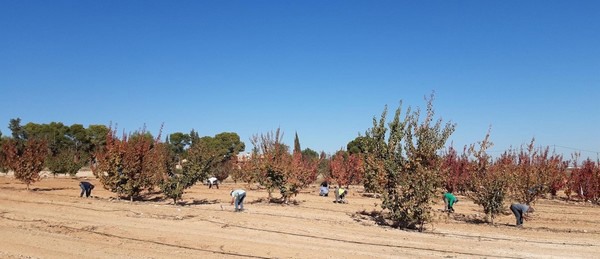
The varieties in their test fields that don't yield satisfactory results in a period of 5 or 6 years are uprooted and replaced by new ones. About 50,000 hybrid varieties are replaced each year, so there is continuous rotation and always around 200,000 hybrids under study.
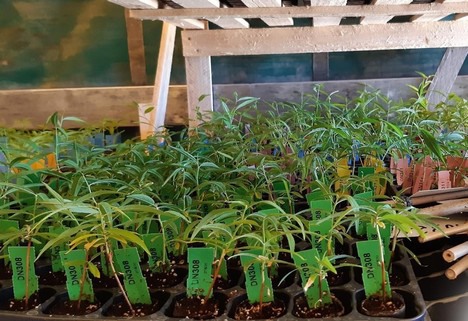
“We breed each seedling as if it were for commercial use, although the actual goal is to obtain the greatest amount of information possible regarding aspects like the flowering, ripening, productivity, Brix, coloration, shelf life, etc. In our first years, one variety out of every 1,000 planted hybrids was patented. Currently, given the increasingly demanding market, our selection process is more thorough and, on average, only one variety out of every 3,000 hybrids available in our fields is patented. We patent between 5 and 15 varieties every year,” said Thomas Chevaillier, technical director of PSB.
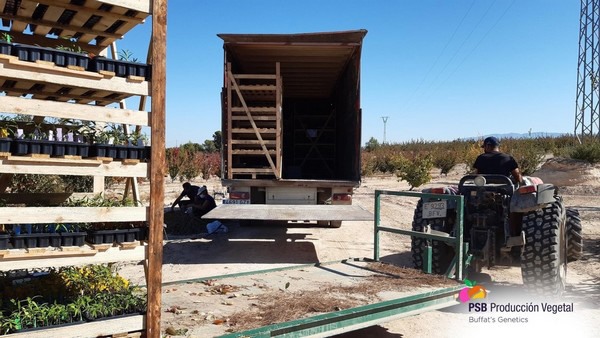
First range of flat nectarines with perfect pistilar closing
“We have been working on a flat nectarine variety program for about 10 years. The crosses carried out over the last 4 years are already yielding good results and this year we have managed to patent the first 8 varieties. Our goal is to patent 5 varieties every year in order to have a full range of flat nectarines in about 2 or 3 years. Over the last 30 years, we have been obtaining Paraguayo peaches with increasingly perfect pistilar closing. When it comes to flat nectarines, we started our first program with varieties that were already perfect in this regard, as well as very tasty. The fact is that the poor pistilar closing has been the biggest obstacle for the marketing of flat nectarines so far."
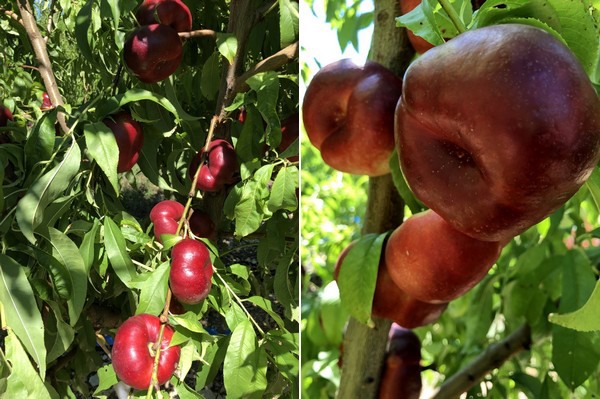
Canoppe flat nectarine, harvested on August 20 in Montelimar, France.
“The flat nectarine is a challenging species, very sensitive to thrips, which attacks both the flower and the fruit, and with frequent lenticel problems when sugar levels are high. For this reason, we select varieties with the lowest possible amount of lenticel cases.”
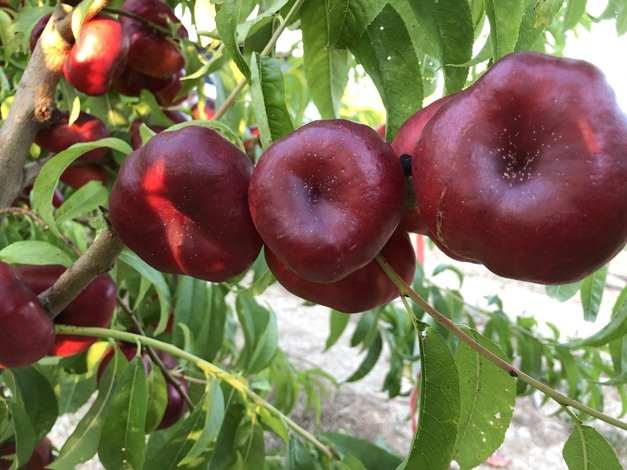
Tintosa flat nectarine, on 07/15/2020 in Montelimar, France
“Another of the biggest difficulties when growing flat nectarines is the cracking, since their flat shape gives the fruit less protection and, therefore, it becomes more sensitive to temperature contrasts and excess water. Also, the size is important, since the production costs are high and the profitability is lower compared to that of round nectarines. Normal nectarines can weigh between 200 and 220 grams per fruit, while flat nectarines usually weigh around 150 grams.”
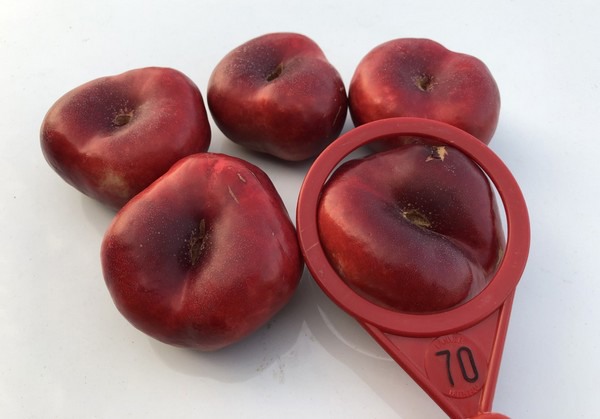
Luisella white-fleshed flat nectarine harvested on 05/10/2020 in Murcia.
Self-fertile American-Japanese plum varieties
“We believe that we can contribute a lot to the plum market, where there are productive old varieties with a long shelf-life, as well as club varieties. We have been working on the selection of American-Japanese plums over the last ten years, both with yellow and red flesh. Our goal is to obtain a range of self-fertile varieties; something difficult to achieve with plums, as with apricots.”
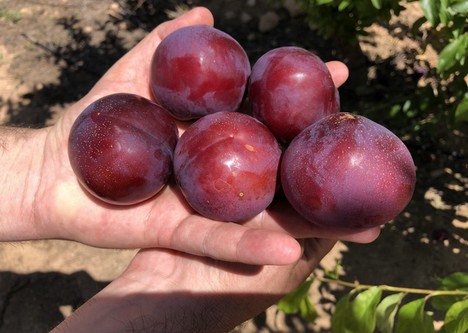
Apolonia, white-fleshed plum, harvested on April 25, 2020, in Murcia.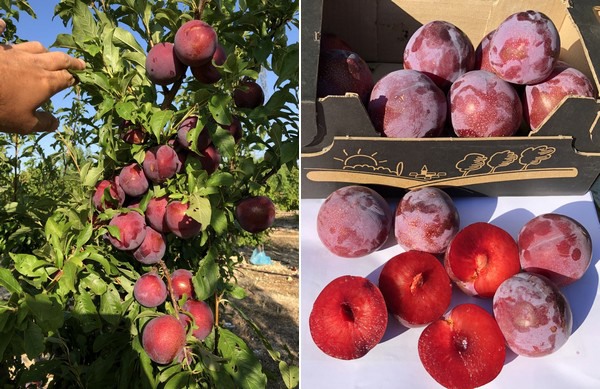
Pallatina red-fleshed plum, harvested on 07/25/2020 in Montelimar, France.
"When selecting varieties, in addition to tolerance to sharka and a good productivity, our main focus is on the taste, looking for the best varieties adapted to each production area. We hope to contribute a lot to Extremadura, the main plum production area in Spain, as well as to help Murcia in the renewal of early varieties,” says Thomas Chevaillier.
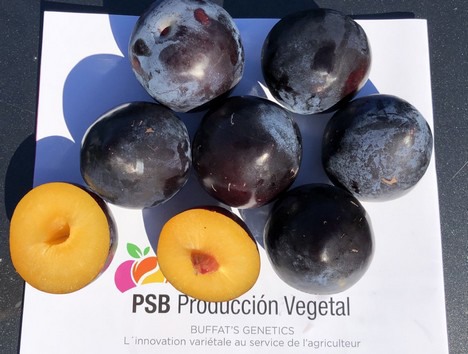 Carme CR45-4 plum with yellow flesh, harvested for the first time on 09/05/2020 in Montelimar, France.
Carme CR45-4 plum with yellow flesh, harvested for the first time on 09/05/2020 in Montelimar, France.
A varietal program for cherries also adapted to areas with few hours of cold
Lastly, PSB will also work with cherries in order to have all stone fruit species. With its new varieties, Murcia could gain ground as a cherry producer.
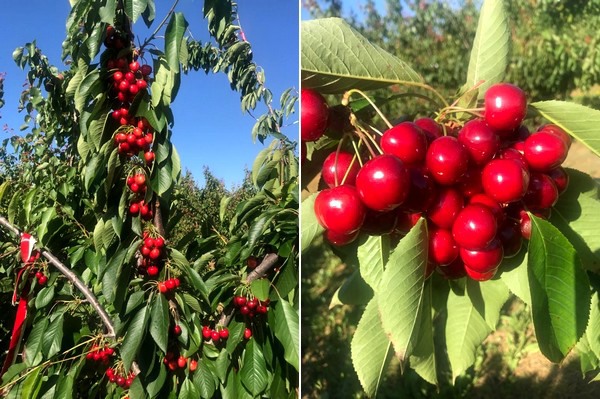 New selection of self-fertile cherries, harvested in late May in France.
New selection of self-fertile cherries, harvested in late May in France.
“There is an interesting production gap in areas with a low amount of cold hours during winter, such as Murcia. We are working to obtain a range of self-fertile varieties. Our goal is to be able to find varieties adapted to Murcia's conditions, as that is where our headquarters are located and it's also the region that we are most attached to. The market could have larger volumes of cherries during the months of April and May,” says Thomas Chevallier. "And we shouldn't forget the varieties adapted to the areas of Cáceres, the Jerte Valley, Zaragoza or Lleida, which are big and well-known cherry-producing areas," he says.
For more information:
Thomas Chevaillier
PSB Producción Vegetal
Technical Commercial Director
T: +34 620 810 125
thomas@psbproduccionvegetal.com
www.psbproduccionvegetal.com
